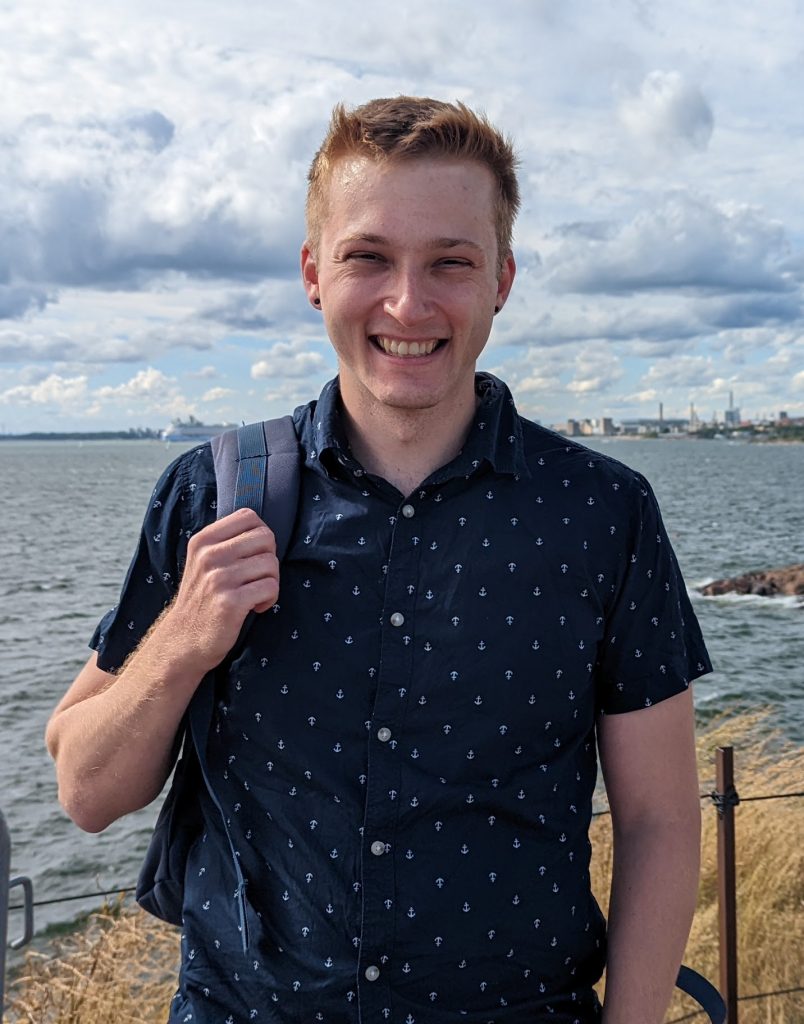Tutorial news: Salje Medals awarded to Dr Kamila Rollan and Dr Simon St-Amant
Clare Hall graduates, Dr Kamila Rollan and Dr Simon St-Amant, have been awarded the Salje Medal for their PhD theses.
Two medals are awarded by the College each year to the most outstanding PhD (1) in the Arts, Humanities, and Social Sciences and (2) in the Sciences. Learn more about their research and what they have been up to since graduating.

Dr Kamila Rollan
Faculty of Education
My PhD research examined the critical role of non-governmental organisations (NGOs) in advancing inclusive education reform in Central Asia (Kazakhstan, Kyrgyzstan, Uzbekistan, Tajikistan), where centralized policy implementation and systemic gaps create disparities in equitable education access. Through grounded theory methodology—incorporating policy analysis and interviews with NGOs, governments, and international organizations—the study identifies eight pivotal NGO roles, including policy advocacy, teacher training, and enhancing school enrollment, while revealing NGOs’ reliance on strategic partnerships to navigate structural constraints such as funding dependency, bureaucratic instability, and limited capacity. Significantly, the research uncovers parental leadership as a driving force of inclusive education reform, with NGOs led by parents of children with disabilities acting as “engines of change,” and proposes the novel *4-Tier Framework of NGO Engagement in Inclusive Education*, offering a systematic analysis of NGO functions, strategies, challenges, and motivations. By bridging theoretical and practical gaps, this work underscores NGOs’ indispensable yet contested role in inclusive education reform, providing actionable insights for sustainable policy collaboration and capacity-building in Central Asia and similar contexts globally.
Since completing my PhD, I have been working in Kazakhstan, where I expanded my work on inclusive education through academic leadership, policy advisory roles, and international knowledge-sharing. Holding the dual position of Inclusion Lead and Assistant Professor at SDU University (Almaty, Kazakhstan), I drive institutional reforms to advance accessibility and inclusion in education, specifically pioneering the reasonable accommodations provisions for students with special needs and disabilities. My policy engagement includes serving as a Member of the Working Group on Legislative Reform in Inclusive and Special Education under Kazakhstan’s Ministry of Enlightenment, where I contribute to shaping national education frameworks. Concurrently, I serve as a Board Member of one of the leading NGOs in the field, the OZIM Platform, where I advise on strategic initiatives to strengthen disability rights and inclusive practices across Kazakhstan. My research continues to reach global audiences through keynote presentations, such as at the BERA Annual Conference (UK, 2024), where I chaired a panel on inclusive education and presented my grounded theory study on NGO engagement, Inclusion, Equity, Cooperation Symposium in Ukraine (2024), and at EmpowerHer Workshop in Armenia, (2024), discussing women-led civil society’s role in fostering inclusion. These efforts reflect my commitment to bridging research, policy, and practice to transform educational equity in the region and beyond.
I am deeply honored to have been recognized by Clare Hall with the Salje Medal for the most outstanding PhD in the Arts, Humanities, and Social Sciences—a testament to the transformative years I spent there as a PhD candidate, also serving as an Equalities Officer in 2020-2021. As I continue to bridge research, policy, and activism, I carry forward Clare Hall’s spirit of interdisciplinary collaboration and its belief in scholarship as a force for equity.

Dr Simon St-Amant
Department of Pure Mathematics and Mathematical Statistics
I did my PhD in a branch of mathematics called geometric inverse problems. This field underpins many imaging techniques such as CT scans, electrical impedance tomography or seismic tomography. My PhD was on inverse problems related to connections, which are geometric objects that describe how vectors change as they move in a curved space. A magnetic potential, which in turn defines a magnetic field, is an example of a connection. I established new uniqueness results for such inverse problems and provided a novel geometric framework for their study. My findings deepen our understanding of inverse problems in differential geometry and have potential applications in physics, particularly in gauge theories such as electromagnetism and quantum field theory.
Since finishing my PhD, I moved to London to work as a quantitative researcher.
I am truly honoured to receive a Salje medal in the sciences from Clare Hall. I will always cherish my time as a member of the College, where I got to meet amazing people and made lifelong friends.